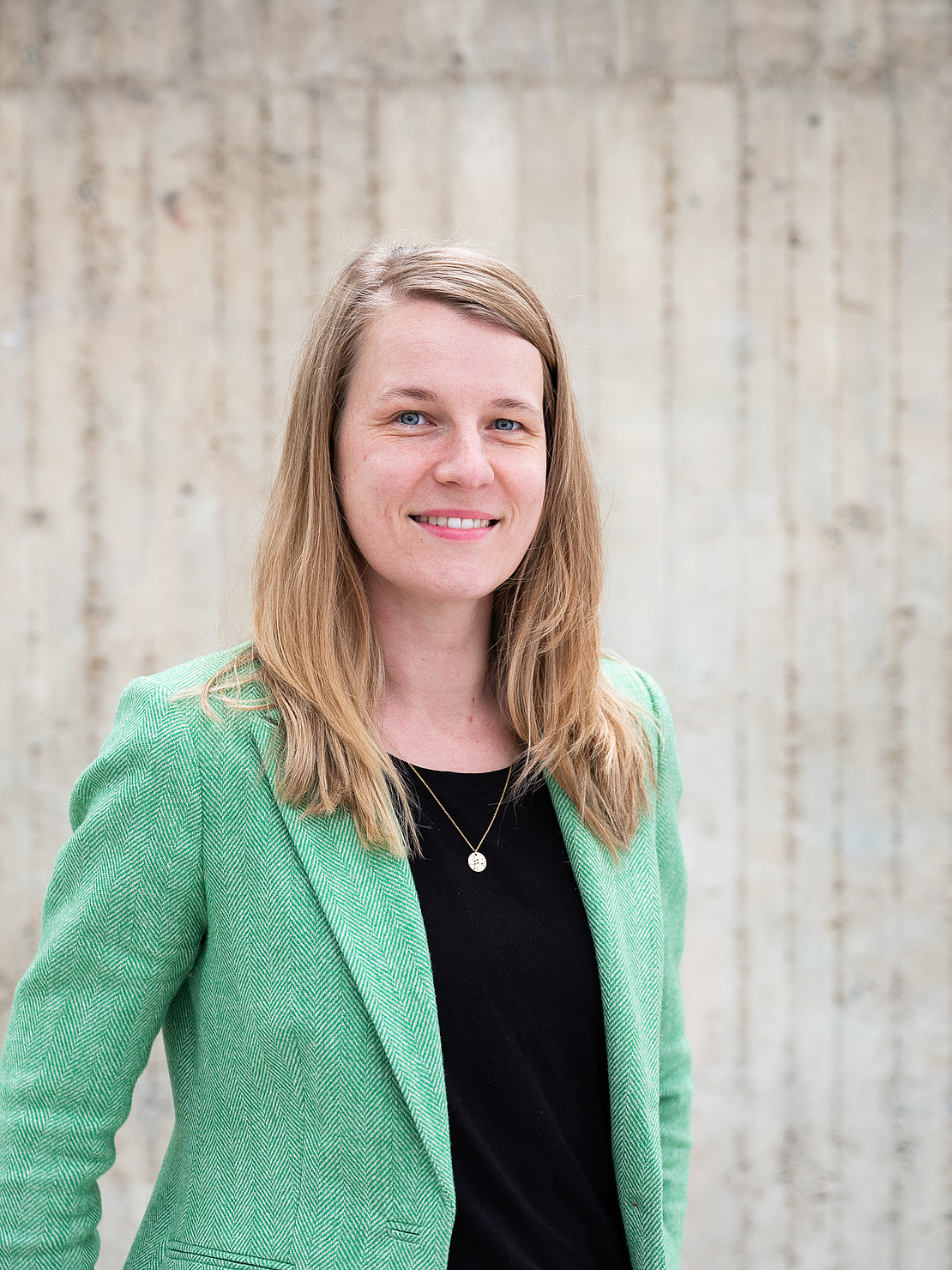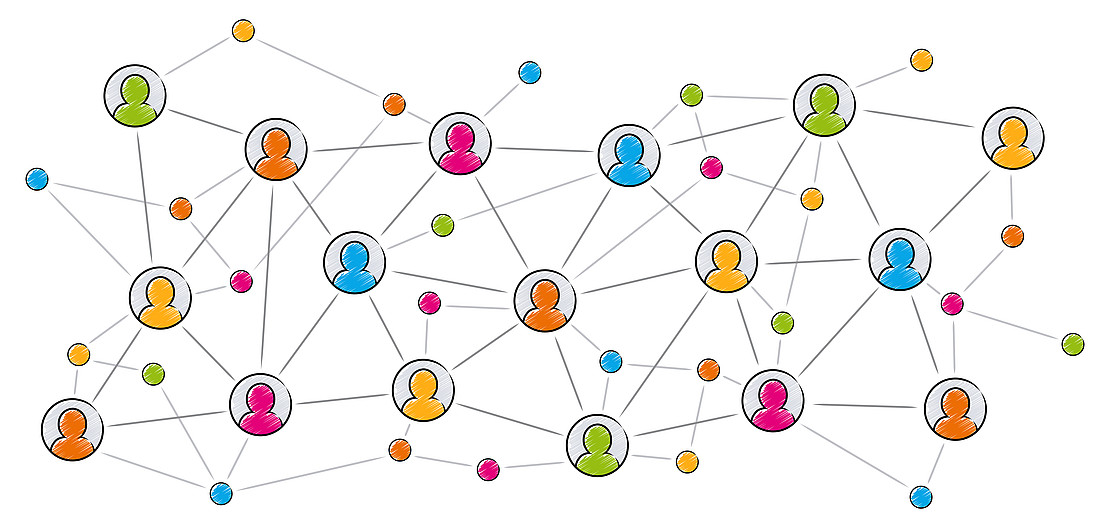People & Networks
The content on this page was translated automatically.
Heads of the project seminars I Go:Green WS 24/25

Prof. Dr.-Ing. Verena Brehm
Prof. Brehm is an architect at FB 06 ASL, FG Entwerfen im städtebaulichen Kontext and is leading the project seminar "Materialbörse am Campus HoPla" for the second time in WS 24/25. The material exchange is a place and a digital platform for the collection, processing and reuse of different types of materials that arise in the university's teaching activities.
As an important part of establishing a circular economy on campus, the project seminar aims to raise awareness of the sustainable use of resources and very specifically reduce the amount of waste by using various materials relevant to studying (folders, cardboard, wooden boards, Styrodur, etc.).
- The seminar was held in SS 2024 by Cornelius Böttger.
- The seminar will be held by Antonia Lüdicke in WS 2024/25.

Prof. Dr. Gabu Heindl
Prof. Dr. Heindl, FB 06 ASL, Head of the Department of Construction Management and Project Development, supervises the seminar "Design Your Shared University Space". The seminar is the active continuation of the analytical-conceptual I Go:Green seminar "Caring and Sharing of University Space" held in SS 24, which launched a process aimed at creating a new culture of self-critical awareness of the need for sharing and sharing of university space and the reuse and upcycling of discarded furniture.
- The seminar was conducted in SS 2024 by Mara Benteler & Henrik Neusüß.
- The seminar will be held in WS 2024/25 by Lara Loescher.
Gabu Heindl says "yes" and "no" (quote from the homepage of her Viennese office"GABU Heindl Architektur"):
"Yes" to the design of public buildings and infrastructure, cultural and educational buildings.
"No" to chauvinistic, racist or discriminatory architecture, to exploitative project proposals, suburbanizing single-family homes or speculative buildings.
 Image: Lucas Melzer
Image: Lucas MelzerProf. Dr. Susanne Ritzmann
Prof. Dr. Susanne Ritzmann holds a professorship for Sustainable Product Design and Development in the Product Design course at the Kunsthochschule Kassel and is responsible for the "Materialbörse@KHK" seminar. The seminar is run by Dipl. Des. Malene Saalmann.
The aim of Materialbörse@KHL is to promote a more sustainable way of working and handling materials during studies and to make it easier for students to access materials free of charge. The background to this is that after every final presentation, mountains of leftover materials, presentation materials and model-making materials end up in the garbage cans in the study rooms. Much of this could be reused, separated or processed in student projects.
Prof. Dr. Susanne Ritzmann devotes her teaching and research at the KHK to the generation and reflection of design knowledge in relation to questions of sustainability.

Dr. rer. nat. Jochen Wulfhorst
Dr. Jochen Wulfhorst is a lecturer in Department 14 Civil and Environmental Engineering and leads the seminar "Green city gravel". The name says it all: the seminar aims to develop concepts for initial demonstration areas for the gravel areas on the Holländischer Platz campus and prepare the redesign of urban areas. In this way, the near-natural soil functions (storage for carbon, water and nutrients, flood protection, cleaning of seeping precipitation) are to be restored and biodiversity ensured. This will improve the microclimate (cooling and evaporation) and enhance the quality of life.

M.A. Frederik Ehling
Frederik Ehling is an architect and research assistant in the ASL Department of Design and Sustainable Building and leads the seminar "Down to the last detail - Strohbau4Experiment" together with Frank Stolz and Prof. Dipl.-Ing. Frank Kasprusch, Head of Department.
The seminar is dedicated to building with organic materials, from material science to the technical details. The aim is to develop, design and build 1:5 and 1:1 components. The construction sector is the only industry worldwide that can have a CO2-negative effect through long-term CO2 sequestration, which requires a sound knowledge of details and materials.
Köster and Schnurr energy team
 Image: Sandra Schumann
Image: Sandra SchumannJan Köster and Dirk Schnurr are energy efficiency managers and are responsible for structural, technical and organizational energy efficiency measures in the university's operations. They are also responsible for developing a local heating and cooling network concept. They use the "intracting" instrument, a financing model with which energy efficiency measures are economically evaluated, identified and implemented. The energy costs saved are then invested in new projects to reduce energy consumption.
In the photo, they are standing next to a roof covered with PV systems. In September 2024, our PV systems produced an impressive 35,728 kWh of electricity! Since the beginning of the year, a total of 321,139 kWh has been generated - this corresponds to the annual consumption of 247 dormitory places and saves an impressive 122.3 tonsof CO2 emissions!
Podcast
As part of the 4th Sustainability Report and for the DGHochN Annual Hub 2023, we conducted interviews with the following interesting people. Have fun listening to them!
The Women's and Equal Opportunities Officer, Dr. Sylke Ernst, gives us an insight into her work, takes a look back at the development of equality over the last 30 years and also provides an exciting outlook on where things may still be heading.
In this interview, Dr. Sabine Säck-da Silva, former Managing Director of the Kassel Institute for Sustainability, tells us what potential she sees through the institute, what initial successes have already been achieved and what we can look forward to in the future.
Prof. Dr. Alexander Roßnagel, the University of Kassel's Commissioner for Ecological Sustainability, has emphatically promoted the development of the environmental profile at the university and established sustainability reporting. In this interview, he gives us an insight into 20 years of sustainable development at the University of Kassel
The head of UniKasselTransfer, Daniel Opper, told us how the SDGplus Lab helps to develop sustainable solutions by connecting science, business and society, to make them big and to establish them both in the North Hesse region and beyond.
Prof. Dr. Jens Knissel, Head of the Department of Technical Building Services, talked to us about the buildings of the future and the responsibility of the University of Kassel.
The Interdisciplinary Working Group Climate Thinking, Dr. Martin Böhnert, Dr. Paul Reszke and Nicole Casper, introduces itself and gives an insight into the transdisciplinary teaching and research project and its variety of methods as well as how it deals with the problem complex of the climate crisis and sustainability.
is a committed young student of urban and regional planning who shows us his view of sustainability issues at the University of Kassel.
Networks
Networking and cooperation with other associations, initiatives and regional institutions is an essential building block for the Green Office in order to further develop the multitude of different ideas and make progress in the implementation of individual measures. We are not only networked internally at the University of Kassel, but also externally, regionally and nationwide. An overview of our cooperation partners and further information can be found in the list.
Internal cooperations:
External cooperations:
- German Federal Environmental Foundation (DBU) (opens in a new window)
- German Society for Sustainability at Universities (DG HochN) (opens in a new window)
- Femnet e.V (opens in a new window)
- Voluntary in Kassel (opens in a new window)
- Infinity Kassel (opens in a new window)
- Sustainability Network of Hessian Universities (NNHH) (opens in a new window)
- Council for Sustainable Development (opens in a new window)
- Regional group Economy for the Common Good (opens in a new window)
- City of Kassel (opens in a new window)
- Student Network for Business and Corporate Ethics (sneep) (opens in a new window)
- Verkehrsclub Deutschland (VCD) (opens in a new window)








